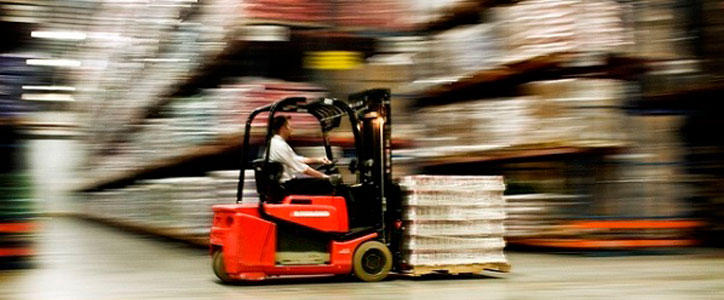Plastic vs Wood: Choosing the right pallet material for your business
01 Mar 2019
Pallets are not only an essential part of the modern supply chain, they quite literally help keep the world moving. Currently, two types of materials are used to make the vast majority of pallets; wood and plastic. While wooden pallets still make up a huge portion of pallet market, plastic alternatives have become more and more popular in recent years as companies shipping, often in very high volumes, realise their advantages.
But which material is the ‘best’, plastic or wood? The truth is each type of pallet has its own unique set of qualities and advantages depending on the type of business using them. In this blog post, we explore the different advantages of each of these materials used to make pallets, and how to select the right pallet for your business and warehouse/ transporting needs.

Wooden Pallets
Generally, wooden pallets are less expensive that plastic pallets, and currently used by between 90-95% of all business. Wooden pallets are not only just affordable but extremely durable. Able to hold anywhere between 1,500 – 3,000 pounds, these extremely tough pallets are also easily repaired and reused.
Majority of all manufactured, durable goods are ideal for this style of pallet.
However, they aren’t ideal for the transportation of fragile items. Wood pallets also have a a very different fire safety rating when compared to plastic. For this reason, businesses buying wooden pallets are advised to thoroughly check their building’s fire safety code before purchasing.
Advantages
- Quick and easy to make
- Affordable and cost effective
- Simple and easy to repair, as they are made with a variety of boards each of which can be removed and replaced if broken.
- Very easy to recycle and up-cycle
- Environmentally friendly (Biodegradable & reusable)
- Have high friction – this means products are prone to shift less.
- Easily resold
Plastic Pallets
Typically, plastic pallets are much better suited to transporting fresh and frozen foods, pharmaceuticals or other products that require strict hygienic requirements. Due to them not being porous they are naturally resilient to chemical, bacterial and microbial contamination.
They are also extremely easy to clean, wash and sterilise.
Although plastic pallets can weigh considerably less, they are often more expensive. Due to this, they are generally better suited for loads heavier than 1,500lbs.
While plastic pallets are often promoted as eco-friendly, they can’t be easily repaired. However, they have a significantly longer lifespan than wood and can be melted down and recycled if needed.
If your business ship products overseas with no way to return and ruse the, then this pricey option may not make much sense you. This doesn’t apply to businesses who ship via air freight or are required to due to hygiene standards.
Advantages
- Highly durable and long-lasting (cost effective in the long-run)
- Approximately 30% lighter than wood pallets
- Not regulated (ISPM-15)
- 100% recyclable
- Can easily be cleaned.
- Resistant to chemicals and bacteria
- Much safer to handle; no screws, nails, splinters etc
- Usable in all climates
- Space saving; easily stored and four way entry for forklifts
The Right One For Your Business
When considering what type of pallet type is best suited to your business needs you want to consider using both wood and plastic. Whilst plastic is currently more expensive than wood; the extra cost may be offset by the lower maintenance costs, which could save your business more money in the long-run.
However, some characteristics of plastic pallets may not be a priority for certain businesses. In this case wooden pallet may be more beneficial to your needs. It is really important for each business to weigh up each of the advantages each of these pallet types before making that all important decision.
